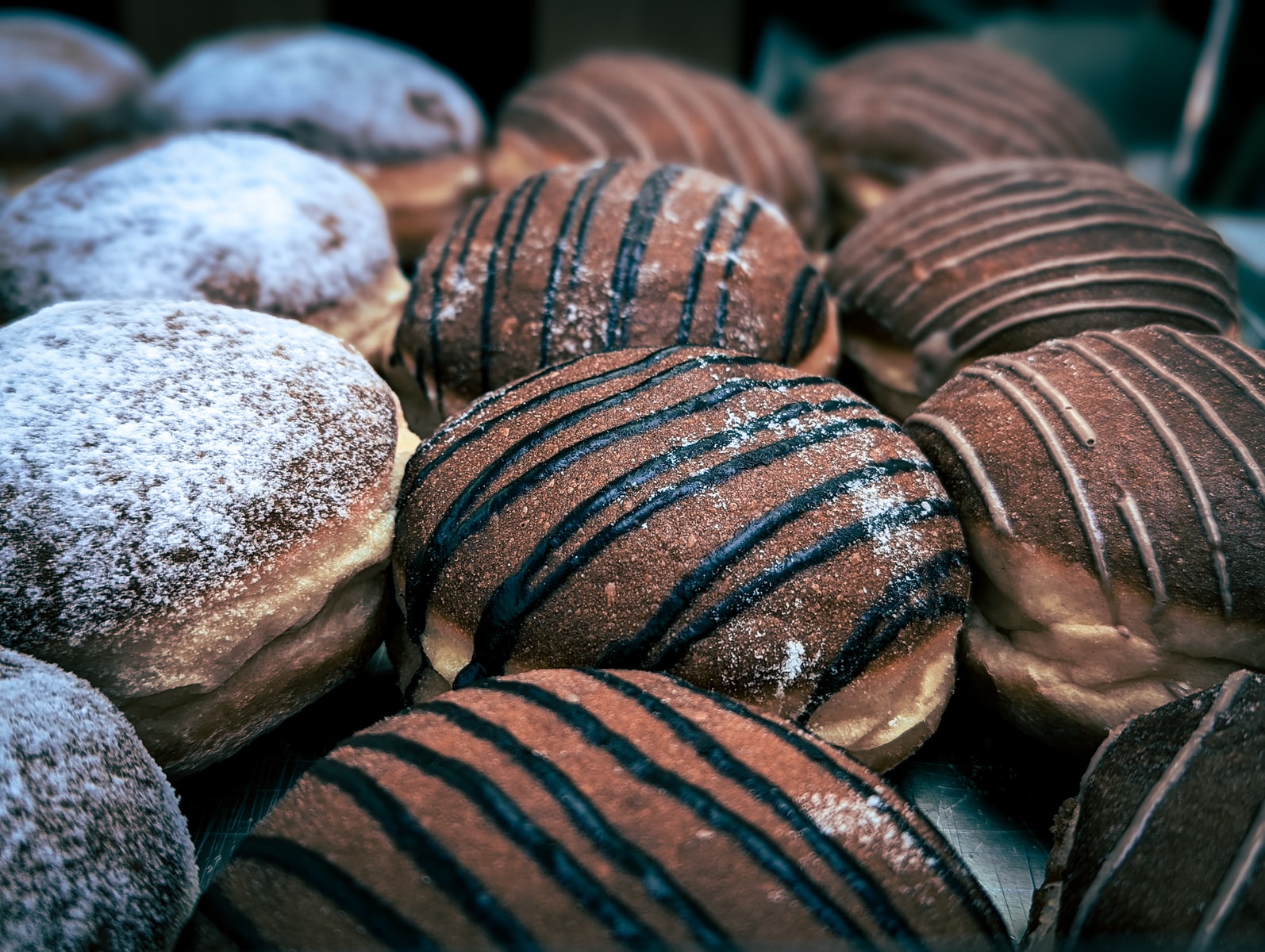おはようございます。KANOです。今回はこちらの記事から。

ドイツのBerlinerというドーナツについて。
ドイツってお菓子のイメージあまりないけど、ドーナツはあるのねってそりゃそうかw
arguably
意味 [文修飾; しばしば最上級· 比較級の前で]まず間違いなく, きっと, おそらく (反対が見込まれる主張に十分な根拠があることを示す)
In the U.S., doughnuts should arguably be considered one of the five food groups. Americans celebrate National Doughnut Day, doughnut-based staples like Dunkin’ have launched deals like “Free Donut Fridays,” and chains appear to come out with new doughnut creations weekly, from Krispy Kreme’s Reese’s Pieces Doughnut to Taco Bell’s Churro Donut. On average, each American consumes about 63 doughnuts per year. But do residents of other countries enjoy the sweet treat as much as Americans?
https://www.thedailymeal.com/1264702/german-beliner-differ-american-donut/
ドーナツチェーンが多いもんなー。
attribute A to B
意味 A〈性質· 特徴など〉が B〈人· 物など〉にあるとする [考える]
Germany has come up with their own version of a doughnut that is often called a Berliner. Sources attribute the doughnut’s name to a Berlin-based baker who was told he couldn’t fight in the Prussian military in 1756. However, he was still allowed to bake for the unit. He would fry the doughnuts over a fire, shaping them to resemble cannonballs. Supposedly, the doughnuts were named Berliners based on where he came from. The doughnuts share different names depending on what region of Germany they’re made in, including Krapfen and Kreppel (or Kräppel). In Berlin, the doughnuts are typically called Pfannkuchen, which means “pancakes” in other parts of Germany. Berlin residents dislike referring to the treats as Berliners. Despite the dessert’s different names, the recipe is generally the same.
https://www.thedailymeal.com/1264702/german-beliner-differ-american-donut/
ベルリンが由来なのね、なるほど。
prank
意味 [C] (悪気のない) いたずら; からかい, 悪ふざけ
Berliners are often used as a prank in Germany on New Year’s Eve. One German tradition involves serving several regular versions of the dessert treats (filled with jam or pudding), then stuffing a few with mustard or other flavors that you may not anticipate. If you eat Berliner filled with mustard or another unintuitive flavor, in theory, you will have a lot of luck throughout the year. Occasionally, adult versions of Berliners have champagne inside. In addition to New Year’s Eve, Berliners are typically enjoyed during the carnival season.
https://www.thedailymeal.com/1264702/german-beliner-differ-american-donut/
ロシアンルーレットw マスタードなら案外いけそう。
chuckle
意味 (主に書) くっくっと笑う, 静かに笑う
Former President John F. Kennedy is often linked to Berliners due to a 1963 speech he made in front of the wall in West Berlin. JFK said, “Ich bin ein Berliner,” or “I am a Berliner.” While JFK’s translation was correct and Germans understood what he meant, The New York Times mistakenly reported years later that Germans had thought he said, “I am a jelly-filled doughnut.” However, German professor Jürgen Eichhoff told Smithsonian Magazine that nobody in the audience chuckled when he said this line because, “The situation was too tense for the Berliners to be amused.” He added, “What is more … ‘Ich bin ein Berliner’ is not only correct but the one and only correct way of expressing in German what the president intended to say.” Plus, people in Berlin generally did not call the doughnuts Berliners. In the 1983 spy novel the “Berlin Game,” one character says, “The day after President Kennedy made his famous proclamation, Berlin cartoonists had a field day with talking donuts.” However, that statement is false. The New York Times article along with this statement are likely what have caused this legend to live on.
https://www.thedailymeal.com/1264702/german-beliner-differ-american-donut/


